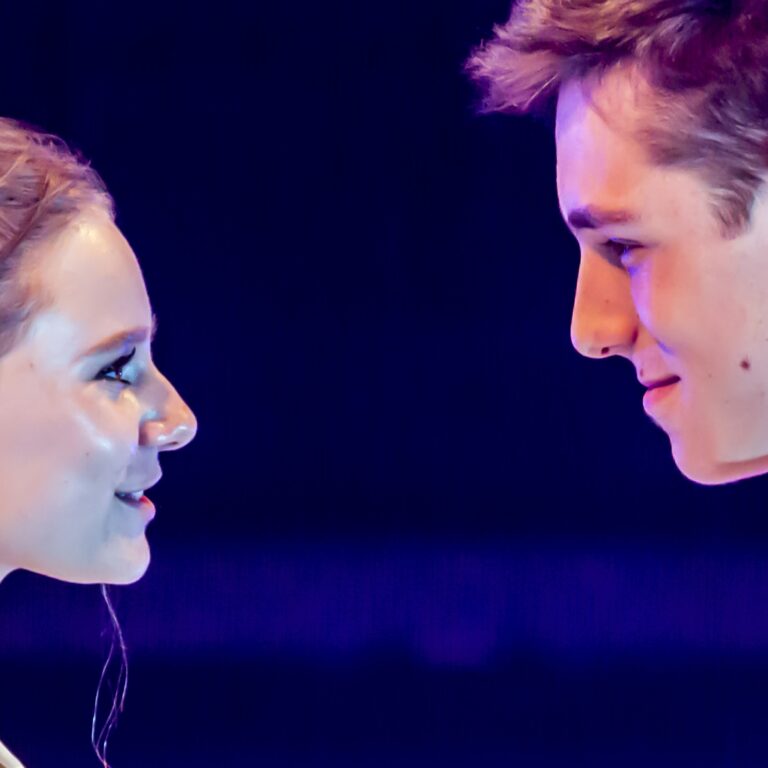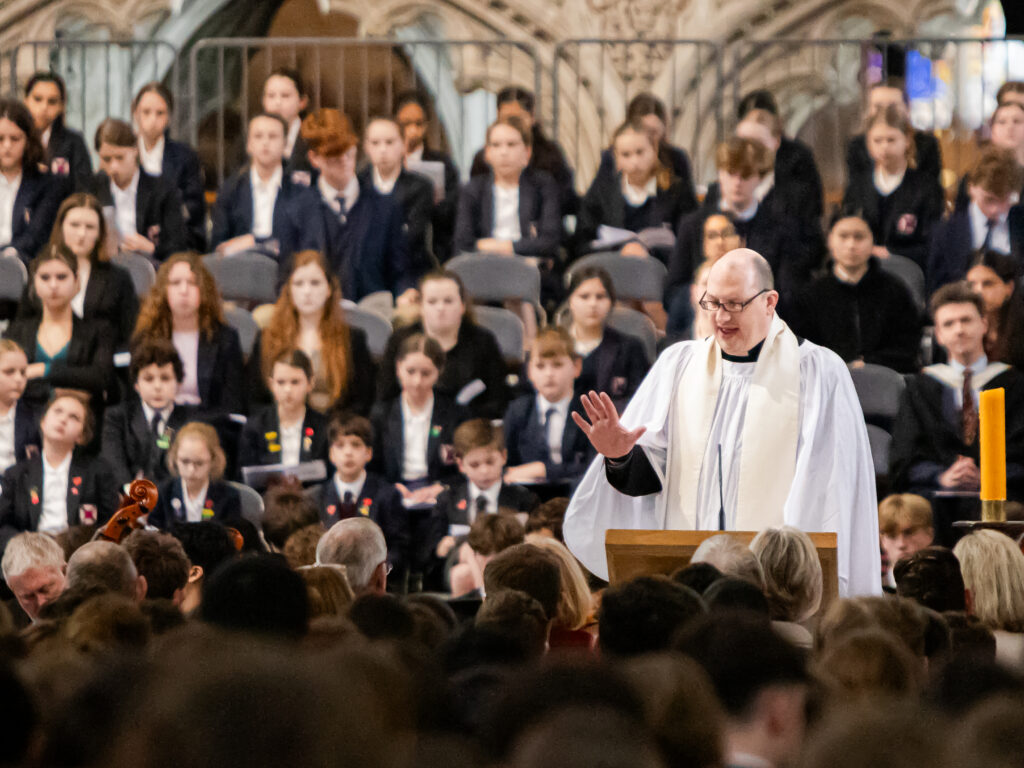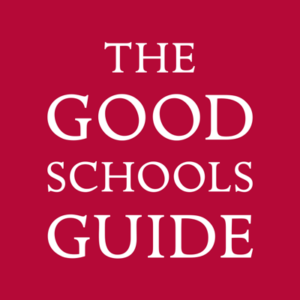March is the month of the year when we look back to the foundation stones of the school’s history and express gratitude for the vision that our founders had which led to the school that we enjoy today. We celebrate Founders Day in Exeter Cathedral and reflect on the great work of the many people who have made contributions, be that educational or financial, over the school’s four centuries.
The school’s foundations go back to the thirteenth century, when Gilbert and John Long, merchants in the city, founded St John’s Hospital on the site of the old Church of St John the Baptist, near the East Gate of Exeter in 1238. Over the next four hundred years the fortunes of St John’s Hospital and its educational mission fluctuated. In the early 1300s the Bishop of Exeter set up a pioneering school to prepare boys for university but this was surrendered to Henry VIII during the Reformation and part of the site was used as a market hall. By 1602 the High School (as it was then known) was the only formal educational institution in Exeter and fell under the jurisdiction of the Dean and Chapter of Exeter Cathedral. The early seventeenth century was a period of great prosperity for Exeter, and its citizens invested their wealth in public services. The City Chamber wished to increase the educational provision in the city and also have control of a school without the restrictions of the Church. This vision culminated, in 1633, with the founding of The Exeter Free Grammar School. Its first headmaster was William Nosworthy. It is this school which was the forerunner of the school that we have today. In 1877, William Butterfield was commissioned to design the new grammar school for boys, on the current site in St Leonard’s, where we enjoy over 20 acres of land and wonderful views of the Haldon Hills.
Of course, the school that existed in the seventeenth century and indeed, four centuries before that, in the very early days in the centre of the city is very different to the school today. There are, however, many aspects of school life which remain fundamentally similar, not least our virtues and character education programme which might not have been called that in the last 150 years, but certainly developed the pupils of the school in the same way that our current programme does. In particular, our alumni reflect positively on the impact of the music and drama that they studied, and performance that they remember with affection. Many of them have strong memories of the sporting provision and local rivalry with other schools just as we continue to see on Saturday match days. Strongest still in many of their memories will be the experiences that they enjoyed in our outdoor education programme, whether through the CCF, Ten Tors or the Duke of Edinburgh’s Award Scheme. All of these continue to thrive in the school – and indeed, have gradually expanded over the last few years, being especially valued by pupils after the pandemic years of 2020 and 2021, when of course, such activities were curtailed.
If they were able to visit a typical lesson today, I wonder what our founders might think of what they see? The fact that there are girls in the classroom, and female teachers would be one obvious difference, and none of our pupils spend the night at school, since we have not had boarding here for about two decades. I hope that they would be impressed by the quality of the relationships both between the pupils themselves and between pupils and teachers, since this is a fundamental bedrock of great education. I hope that they would be pleased to see pupils of all ages (from the nursery to the sixth form) having a lot of fun in their learning and being eager to ask more questions and develop their skills and knowledge further. I am sure that they would enjoy watching the development of independent learners, with intellectual curiosity and a desire to do their best – becoming exceptional Exonians.
In the cathedral on 20 March, we heard the act of commemoration which reminds us of the important people who have made a contribution to life at Exeter School over the centuries. The closing words remind us of the importance of gratitude, and are rather lovely and timeless:
We give thanks for:
those who have achieved distinction in education, business or public and charitable service
those who have excelled in the arts, drama, music and sport
those who have given their lives, even very recently, in the service of their country.
And here today, in this ancient Cathedral,
let us not forget what it means to praise.
Let us not forget what it means to serve.
Let us not forget what it means to love.






